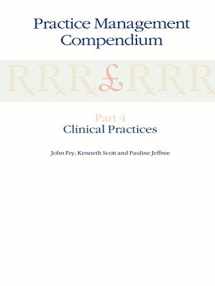
Practice Management Compendium: Part 4: Clinical Practices
Book details
Summary
Description
General Practice is undergoing the most major series of changes since the introduction of the National Health Service in 1948. They concern both concepts of care and practical details of the way care is delivered. In spite of the hostility generated by the changes most of the broad general concepts have been accepted. The principle of patients having more choice is widely sup ported, the inclusion of preventive medicine and antici patory care in the responsibilities of practice has few opponents, the introduction of audit as a way of im proving performance has been generally welcomed. Even the idea of putting GPs in better financial management of patients and drug budgets has had supporters in prin ciple. The antipathy has generally related to the method of introduction of these changes. One important con cern has been the time requirements of the New Con tract and the feeling that these will erode the real nature of our work: the close personal relationship with pa tients. If we improve the quality of our management this is less likely to happen. We shall be able to work within the New Contract and retain the quality of service we pro vide. If we improve the understanding of our staff of what we are trying to achieve we are more likely to reach the targets that we set whilst keeping people happy. vii This book sets out to explain the New Contract.


We would LOVE it if you could help us and other readers by reviewing the book
Book review



